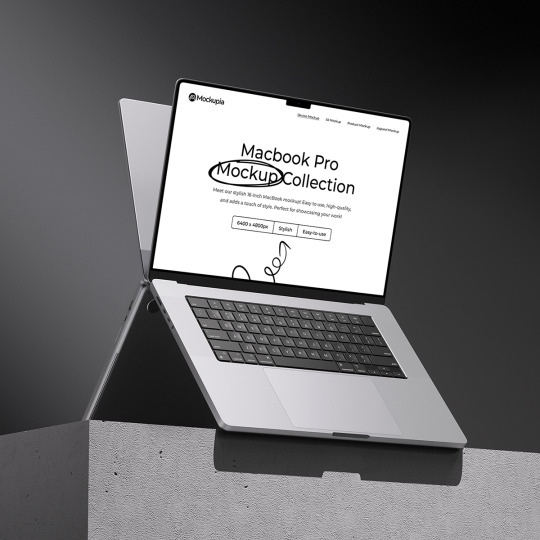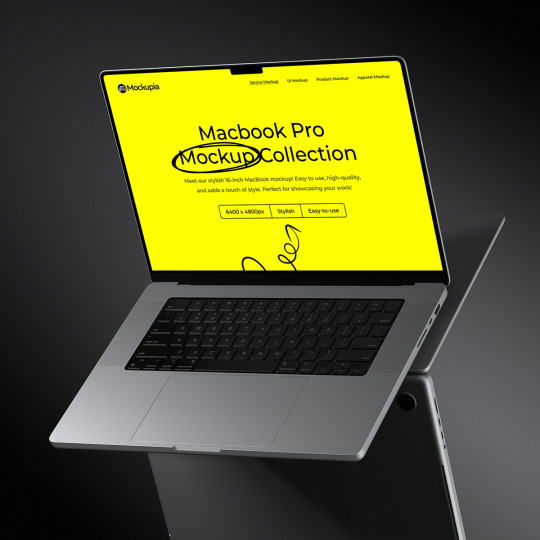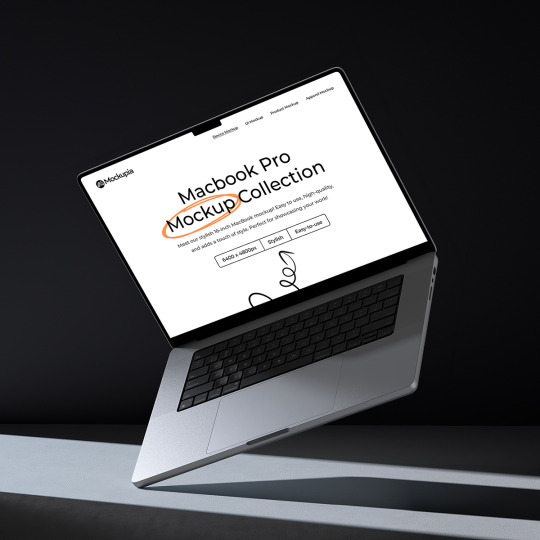#Cloud web Apps
Explore tagged Tumblr posts
Text
Empower Your Digital Presence with Cutting-Edge Frameworks
In today’s fast-evolving digital landscape, staying ahead requires more than just a functional website or application—it demands innovation and efficiency. At Atcuality, we specialize in Website and Application Framework Upgrade solutions tailored to your business goals. Whether you're looking to optimize performance, enhance user experience, or integrate the latest technologies, our team ensures seamless upgrades that align with industry standards. Transitioning to advanced frameworks not only improves loading speeds and scalability but also strengthens your cybersecurity measures. With Atcuality, you gain access to bespoke services that future-proof your digital assets. Let us elevate your online platforms to a new realm of excellence.
#ai applications#artificial intelligence#ai services#website development#website developer near me#website developers#website developer in india#web development#web design#application development#app development#app developers#digital marketing#seo services#seo#emailmarketing#search engine marketing#search engine optimization#digital consulting#virtual reality#vr games#vr development#augmented reality#augmented and virtual reality market#cash collection application#task management#blockchain#metaverse#cloud computing#information technology
8 notes
·
View notes
Text
Abathur

At Abathur, we believe technology should empower, not complicate.
Our mission is to provide seamless, scalable, and secure solutions for businesses of all sizes. With a team of experts specializing in various tech domains, we ensure our clients stay ahead in an ever-evolving digital landscape.
Why Choose Us? Expert-Led Innovation – Our team is built on experience and expertise. Security First Approach – Cybersecurity is embedded in all our solutions. Scalable & Future-Proof – We design solutions that grow with you. Client-Centric Focus – Your success is our priority.
#Software Development#Web Development#Mobile App Development#API Integration#Artificial Intelligence#Machine Learning#Predictive Analytics#AI Automation#NLP#Data Analytics#Business Intelligence#Big Data#Cybersecurity#Risk Management#Penetration Testing#Cloud Security#Network Security#Compliance#Networking#IT Support#Cloud Management#AWS#Azure#DevOps#Server Management#Digital Marketing#SEO#Social Media Marketing#Paid Ads#Content Marketing
2 notes
·
View notes
Text
Trusted outsource software development teams - SSTech System

Outsource software development is the practice of relinquishing software-related duties to outside singularities or organizations. Outsourcing is used by firms to acquire software services and products from outside firms that do not have direct employees or employees under contract to the business entity that is outsourcing.
Infect, the outsourcing market worldwide is projected to grow by 8.28% (2025-2029) resulting in a market volume of US$812.70bn in 2029. This model is highly versatile and suits businesses of all sizes.
Start-ups often use outsourcing to develop MVPs quickly, while established companies might seek custom software development services or AI outsourcing services to address complex challenges. Outsourcing can include working with offshore development teams, global software development partners, or local experts like Australian software development experts for specific projects.
The benefits of outsourcing software development
Outsourcing has become a cornerstone for modern businesses due to its numerous advantages. Here’s a closer look at the key benefits:
1. Cost efficiency
Perhaps the biggest incentive for sourcing solutions from outsourcing service providers is the cost cutting factor. For instance, offshore software development in India provides expertise services at comparatively lower cost than that of in-house developed services in Western countries. This efficiency enable the enactments of cost savings in some other strategic sectors of the organization.
2. Access to global talent
Outsourcing can help to discover the wealth of new talents as well as the skills of professionals from other countries. No matter Whether it’s AI and machine learning integration, web application development in Australia, or outsourced healthcare software development, businesses can find experts in virtually any domain.
3. Scalability and flexibility
Outsourcing offers flexibility that is unparalleled in many organizations today. This is because; firms are able to expand and contract particular teams depending on the specific demand in projects. For example, outsourced IT solutions help business organizations prepare for different conditions while not having to employ permanent workers.
4. Faster time-to-market
With reliable software development teams in Australia or offshore development teams in India, businesses can speed up their project timelines. This helps innovations to make it through to the market early enough, which is useful for companies.
5. Focus on core activities
By delegating tasks like software maintenance and support or cloud software development in Australia to outsourcing partners, businesses can focus on their core competencies and strategic goals.
6. Reduced risk
In-house staff and trained outsourcing partners come with best practices, methods and procedures which when implemented reduce the chances of project hitch. Working with the top-rated IT outsourcing companies in Australia gives you confidence that your project is in safe hands.
Choosing the right outsourced software development partner

In the period from 2023 to 2027, the revenue of software outsourcing is forecasted to thrive at a CAGR of 7.54%. So, outsourcing partner selection is one of the most vital components since it determines the success of a given venture. Here are essential factors to consider:
1. Technical expertise
Check the partner’s competency and his knowledge of the field. For instance, SSTech System Outsourcing offers comprehensive solutions, from AI development services in India to mobile app development outsourcing in Australia.
2. Proven track record
Look for partners with a strong portfolio and positive client testimonials. A proven track record in delivering custom software development services or managing outsourcing software development contracts is a good indicator of reliability.
3. Effective communication
Effective and open communication is extremely important if the project is to be successful. Work with people who give frequent reports and employ efficient media to overcome the differences in time areas.
4. Cultural compatibility
There has to be a cultural match or at least appreciation for each other’s customs for there to be harmony in the working relationship. As such, staffed with proficient Australia software development experts or offshore development teams, whose experience is to work on global markets can coordinate and blend well with your work culture.
5. Security and compliance
You have to make sure that your partner complies with the standards and the policies that are in the industry. This is especially substantial for all information-sensitive projects such as outsourced healthcare software development or cloud software development in Australia.
6. Scalable infrastructure
Choose a partner capable of scaling their resources and infrastructure to meet your project’s evolving needs. This is crucial for long-term collaborations, especially with global software development partners.
AI-powered tools for outsourced development teams
According to a report from the US Bureau of Labor Statistics, software development ranks among the most sought-after professions. Hence, AI is at the forefront of reshaping the outsourcing industry. Therefore, the implementation of artificial intelligence will add value to business processes, make workflow easier, and boost the results of projects. Here are some examples:
1. Automated code reviews
Tools like DeepCode and SonarQube assist outsourced teams in detecting whether errors reside in the code line or not, and whether code needs to be enriched or not. This is particularly accurate concerning AI outsourcing and in-house development industries.
2. Predictive analytics
Automated analytics tools can predict such things as the time it will take to complete the project, how much money it will cost, and what risks are possible in a software development outsourcing scenario.
3. Smart project management
Tools and platforms such as Jira and Monday.com, when empowered with AI, allow the coordination of tasks and the tracking of progress and resource allocation.
4. AI collaboration tools
Communication and collaboration with internal members and offshore software development Australia partners get facilitated through applications that include, Slack, Microsoft Teams, and zoom with integrated AI functions.
5. Natural Language Processing (NLP)
AI-powered chatbots and virtual assistants simplify communication and issue resolution, making them valuable for managing outsourced IT solutions.
Best practices for managing outsourced development teams
Outsourced teams should be mandated and coordinated following a number of recommendations to ensure the efficiency of the entirety of the outsourcing process.
Here are the best practices to ensure your project’s success:
1. Set clear objectives
Make it clear to your project team, stakeholders, and other relevant parties what the parameters of the project are, what it is that you expect out of it, and what you expect to get from it in return. This fostaines consistency between your team and the outsourcing partner to increase efficiency in service delivery.
2. Choose the right tools
Use project tracking and collaboration software approaches to track and evaluate progress and meet regular informality and collaboration targets.
3. Foster a collaborative environment
It is worthy of note that constant communication is key to ensuring that your outsourcing team is on the same page with you. Fresh produce and feedback mechanisms need to be provided in order for there to be trust as is needed in project management.
4. Draft comprehensive contracts
There should be a comprehensive outsourcing software development contract. It should address issues to do with confidentiality, ownership of ideas and concepts, plea structure and mode of handling disputes.
5. Focus on long-term relationships
Building a long-term partnership with trusted providers like SSTech System Solutions can lead to consistent quality and better project outcomes.
Conclusion
To keep up with technology, outsourcing software development offers businesses solutions and support that can enable the creation of complex solutions out of mere ideas. Outsourcing has the benefits of minute overhead cost and is also a rich source of globally talented employees, and it offers the advantage of early time to market. Whether you’re looking for mobile app development outsourcing in Australia or seeking offshore software development in India or opting for AI outsourcing services, the potential is huge.
Such companies can only benefit from opting for reliable outsourcing companies such as SSTech System Outsourcing and embracing industry best practices to promote the success of business project implementations while enhancing market relevance. As technologies like AI and cloud computing are still changing the face of the outsourcing market, software development outsourcing will still be important for any company that wants to survive in a digital world.
Take the first step today—partner with global software development partners and unlock the full potential of your ideas with the power of outsourcing.
#SSTech System Outsourcing#SSTech System Solutions#AI outsourcing services#cloud computing#offshore software development#Outsource software development#AI outsourcing#web application development in Australia#custom software development services#mobile app development#outsourced IT solutions#cloud software development#IT Support & Maintenance Services
4 notes
·
View notes
Text
WordPress Security Services Tailored to Your Business Needs
Atcuality understands that every WordPress website has unique security needs. Our specialized WordPress security services provide customized solutions to safeguard your website from malicious attacks, unauthorized access, and technical vulnerabilities. Whether you own a blog, corporate website, or online store, our comprehensive approach includes malware scanning, vulnerability patching, firewall implementation, and site backups. Atcuality’s team of security professionals works tirelessly to monitor and eliminate threats before they can impact your business. With advanced tools and strategies like SSL encryption and uptime monitoring, we ensure your website operates securely while maintaining peak performance. Cyber threats evolve daily, but with Atcuality, you can stay one step ahead. Don’t let your website become a target—secure your site and maintain customer trust with our proven WordPress security solutions.
#seo marketing#seo services#artificial intelligence#digital marketing#iot applications#seo company#seo agency#amazon web services#azure cloud services#ai powered application#ai applications#ai app development#virtual reality#vr development#vr games#wordpress#web developers#web development#web design#web developing company#website developer near me#wordpress development#web hosting#website#augmented and virtual reality market#augmented human c4 621#augmented intelligence#augmented reality#iot#iotsolutions
4 notes
·
View notes
Text

The Future of Software Development: Top Trends to Watch in 2024
Introduction:
The field of technology is always changing, but software creation is still at the cutting edge of brand-new ideas. As 2024 approaches, the trends that will shape the future of software development become more apparent. These trends will bring both exciting possibilities and challenges for businesses and workers. This blog post will talk about the most important trends to keep an eye on in 2024, covering everything from cloud-based solutions to custom software creation.
1. Custom Software Development
Custom software development is still an important part of modern businesses because it lets them make solutions that fit their exact needs. In 2024, we expect a huge increase in the need for unique software solutions as companies try to stand out in very competitive markets. Custom software development is the most adaptable and adjustable way to improve customer experiences or streamline internal processes. CodeRower specializes in creating custom software that enhances customer experiences and streamlines internal processes, making us a valuable partner for businesses looking to innovate.
2. Software Development Services
People are still looking for software development services because they need help and professionals to make cutting-edge apps. Outsourcing software development has become a smart choice for many companies, from startups to large corporations, that want to cut down on development time and time to market. CodeRower provides comprehensive software development services, enabling companies to leverage expert knowledge and achieve their goals efficiently.
3. Mobile App Development
Since smartphones and other mobile devices are becoming more popular, companies that want to connect with customers while they’re on the go still put a lot of emphasis on mobile app development. We think 2024 will be a big year for user-centred design and making new technologies like augmented reality (AR) and artificial intelligence (AI) work well.
4. Developers of Web Applications
Developers of Web applications are moving toward making experiences that are more engaging and flexible. Progressive web apps (PWAs) and single-page apps (SPAs) will likely become popular in 2024 as companies try to make the web faster and more interesting on all devices. CodeRower is at the forefront of this trend, ensuring that our web applications offer seamless user experiences.
5. Cross-device App Development
Making apps that work on multiple devices without any problems is possible with cross-platform app development, which has become more popular in recent years. By 2024, cross-platform tools like React Native and Flutter should have even better features, allowing developers to reach more people with less work.
6. Full-Stack Development
As of now, workers who are skilled in both front-end and back-end platforms are in high demand for full-stack development. They are seen as versatile and knowledgeable. There will be a greater need for full-stack coders who can offer complete solutions in 2024, so training and upskilling programs will be a big focus. CodeRower embraces this trend, equipping our team with diverse skills to handle both ends of development.
7. Web Design and Development
Web design and programming are very important for shaping the user experience and getting people to interact with your site. We expect to see a move toward simple and easy-to-use designs in 2024, with an emphasis on making things accessible and open to everyone. The digital world will also continue to change as new design trends like dark mode and neomorphism become more popular.
8. Cloud-Based Solutions
Modern infrastructure is built around cloud-based solutions, which are scalable, reliable, and cost-effective. We think that there will be even more movement toward cloud-native designs in 2024, with a focus on serverless computing and containerization. Multi-cloud and mixed-cloud methods are also becoming more popular, which will give companies more freedom and stability. CodeRower helps businesses adopt these solutions effectively, ensuring they maximize their cloud investments.
9. Continuous Integration and Continuous Deployment (CI/CD)
Continuous Integration and Continuous Deployment (CI/CD) techniques have changed the way software is developed by making it possible for teams to make code changes quickly and accurately. We expect a lot of people to use CI/CD processes in 2024, with a focus on automation, teamwork, and feedback loops. Employing CI/CD in their work processes can help companies release software more quickly and with higher quality.
10. Software testing and product testing
Software testing is still an important part of the development process because it makes sure that apps work as planned and meet quality standards. Automated testing systems and AI-driven testing tools will become more popular in 2024, making it easier for coders to find problems and fix them. For the whole development process, using shift-left testing methods will also help build a mindset of quality.
11. Custom Web App Development
When businesses hire custom web app developers, they want solutions that are made just for them and the problems and chances in their fields. Custom web apps are flexible, safe, and quick, and they can be used to make management systems inside the company or sites for customers. It’s going to be very popular to have custom web apps made in 2024 because companies will want to stay ahead of the competition and focus on digital change projects. CodeRower is well-equipped to deliver these tailored solutions.
12. Web Solutions
Many tools and services can be used to make web experiences that are live and engaging. Web tools, like e-commerce platforms and content management systems, help companies connect with customers, run their businesses, and grow. Developer tools, content management systems, and hosting services are likely to keep getting better in 2024, which will allow businesses to make web apps that are strong and flexible.
13. Develop Mobile Apps
Mobile apps are now essential for companies that want to reach people while they’re on the go and make the user experience better. Native mobile app development will be a big deal in 2024. To make sure users have a smooth and fast experience, developers will use platform-specific features and functions. Additionally, makers will be able to make new, feature-packed mobile apps by combining cutting-edge technologies like machine learning and blockchain.
14. App Development
The process of making apps for different devices, like phones, the web, and computers, is called app development. We expect a coming together of technologies and methods in 2024, which will make it easy for coders to make apps that work on multiple platforms. With the rise of low-code and no-code development platforms, companies can speed up the process of making apps and give regular people the tools they need to help make new solutions.
15. Emerging Technologies
Artificial intelligence (AI), machine learning (ML), bitcoin, and the Internet of Things (IoT) are just a few of the new technologies that will drastically change the way software is made in 2024. These technologies could completely change businesses, make tasks easier to do, and generate new ideas in all areas. AI and ML will be used more for predictive analytics, personalized experiences, and automating regular chores in 2024. Similarly, blockchain technology will keep shaking up old ways of doing business by making deals safe and clear, while IoT devices will make it easier to connect and gain insights from data.
16. Augmented Reality (AR) and Virtual Reality (VR) Development
Augmented reality (AR) and virtual reality (VR) have become powerful tools that could change many fields, from fun and games to education and healthcare. Hardware, software, and content creation tools will get better in 2024, which will lead to a lot of new AR and VR releases. AR and VR will be used more and more by businesses to make events more engaging, improve training programs, and connect with customers in fresh new ways.
17. Integration of Artificial Intelligence (AI) and Machine Learning (ML)
AI and ML are going to be very important in the future of software development, allowing smart automation, predictive analytics, and customized experiences. We expect to see more AI and ML built into software in 2024, as companies use data to make better decisions and run their businesses more efficiently. AI and ML will continue to change how software is made, used, and implemented, from robots and virtual helpers to recommendation engines and systems that look for scams.
18. Quantum Computing
Quantum computing is a big change in the way computers work. It can do processing that has never been seen before and could help solve hard problems that regular computers can’t. Future progress in quantum computing is expected to continue in 2024. This will have effects on software development in areas like security, optimization, and science modelling. Quantum computing isn’t being used by most people yet, but developers and businesses are starting to look into how it could be used and what it means for the future of software development.
19. Edge Computing
The rise of edge computing has made it possible for real-time processing and low-latency apps. Edge computing brings computer power closer to where the data is created. Edge computer technologies are likely to become more popular in 2024, especially in fields like IoT, manufacturing, and self-driving cars. Edge computing is an important part of the future of software development because it processes data closer to where it is created. This means that decisions can be made faster, bandwidth is used less, and dependability is improved.
20. DevOps and DevSecOps Practices
DevOps and DevSecOps practices are becoming more popular in software development because they help teams simplify processes, speed up delivery, and make security better. Further use of DevOps and DevSecOps methods is expected in 2024, due to the need for more cooperation, automation, and flexibility. DevOps and DevSecOps allow teams to create high-quality software faster and more safely by combining development, operations, and security into a single process. This meets the needs of today’s digital world, which is changing quickly.
21. Data Privacy and Security
Businesses and customers both care a lot about data privacy and security. Strong security measures are needed because of rising online risks and laws. Data protection and security will still be important in software development in 2024, with a focus on encryption, identification, and compliance. Developers will be very important in keeping private data safe and defence against new threats. They will do things like secure code, security testing, and vulnerability evaluations.
22. Low-Code and No-Code Development Platforms
Low-code and no-code development platforms have made software creation more accessible to everyone, letting business users and citizen coders make apps without needing to know a lot about coding. As businesses try to speed up their digital transformation efforts and meet the growing demand for custom software solutions, we expect the low-code and no-code market to continue to grow in 2024. Low-code and no-code systems help businesses quickly adapt to changing customer wants and market conditions by hiding complexity and cutting down on development time.
23. Ethics and Responsible AI
As AI and ML become more common, people are becoming more aware of the moral and social effects they can have. We think that ethics and responsible AI will get more attention in software development in 2024. Developers and companies will take more steps to make sure that AI-driven systems are fair, open, and accountable. Researchers will have to think about how their work affects other people and put ethics first throughout the whole development process. This includes methods to reduce bias and ethical AI models and standards.
24. Remote Collaboration and Distributed Teams
The move to working from home has completely changed how teams work together and talk to each other. In software development, distributed teams are now the rule. As companies get used to mixed work models and see the benefits of remote work, we expect them to put more money into tools and platforms for online teamwork in 2024. With tools like virtual whiteboarding, videoconferencing, project management, and version control, online collaboration platforms make it easy for teams to work together even when they are in different places. This encourages creativity, innovation, and efficiency.
25. Diversity and Inclusion in Tech
Inclusion and diversity have become very important issues in the tech industry, as more people realize how important different points of view and experiences are for fostering creativity and innovation. We expect that more will be done in 2024 to support diversity and inclusion in software development. For example, mentoring programs, diversity training, and hiring methods that are open to everyone will be given top priority by companies. Businesses can get the most out of their teams and encourage an atmosphere of innovation and success by making the workplace more fair and open to everyone.
In conclusion:
In 2024, the future of software development will be marked by new ideas, quick changes, and a never-ending quest for perfection. To stay competitive in today’s digital world, businesses and workers need to keep up with the latest trends and changes in everything from new technologies like AI and quantum computing to well-known practices like DevOps and data security. Software engineers can change the future of technology for years to come by being open to change, encouraging teamwork, and putting ethics and fairness first.
Are you ready to take your software development to the next level in 2024? At CodeRower, we specialize in custom software solutions tailored to your unique business needs. Whether you’re looking to enhance your mobile app, streamline your operations with cloud-based technologies, or integrate AI and machine learning into your processes, our expert team is here to help.
Contact us today to discuss how we can assist you in navigating the latest trends and achieving your development goals. Let’s build the future together!
#software development#app development#web app development#web development#android app development#ios app development#custom software development#game development#custom app development#blockchain development#full stack developer#website development#cloud computing
3 notes
·
View notes
Text










MacBook Pro Mockups Collection
Available now at ⚡ mockupcloud.com
#mockup#branding#psd#template#showcase#mockupcloud#brand#download#macbook#apple#device#tech#mockup cloud#screen#app#ui ux design#web#ai
2 notes
·
View notes
Text

Summer Internship Program 2024
For More Details Visit Our Website - internship.learnandbuild.in
#machine learning#programming#python#linux#data science#data scientist#frontend web development#backend web development#salesforce admin#salesforce development#cloud AI with AWS#Internet of things & AI#Cyber security#Mobile App Development using flutter#data structures & algorithms#java core#python programming#summer internship program#summer internship program 2024
2 notes
·
View notes
Text
it seems like every 6 months there's some new panic on my dash about google docs' TOS and also every 6 months I'm confused about why so many people still use google docs. I thought this was the "fuck google chrome, switch to Firefox" website so where is the same enthusiasm for word processing alternatives. please love yourselves and download libreoffice or something
#i can't have a high horse about this as i type this on my google phone#but I've never used google docs just bc i don't like it so It's not familiar to me#so i don't understand the attachment to it#also I don't like web apps. documents belong on my computer not a cloud#i mean mine are backed up to a dropbox but that's not where they live. you understand#reilly.txt
1 note
·
View note
Text
trying to read the fuckin. new york times. which i pay real people money for. and i keep getting this extremely disgusting mid-article adverisement that's this animated mole removal/pimple popping thing that makes me cringe away from my screen in horror. i keep seeing it over the last few days.
i get that if i paid for a physical copy of a newspaper there would be advertisements too, but there certainly wouldn't be this nonsense 😭 why do i gotta suffer this
#idk if this is old man yelling at clouds or what but i am just so viscerally disgusted by advertising at all times#i use adblock on 95% of my web experience but let me read my silly liberal newspaper in the app in peace.......
4 notes
·
View notes
Text
I have been saying this for a while, this has contributed to the appification of the entire internet; including when you aren't even on mobile. it is just utter hubris. having worked in tech support allowed me to see this firsthand.
its how you get people who don't know what the fundamental concept of a website is; all they know is that you tell google what you want and it gives it to you. and its not their fault. its the overarching philosophy of trying to obfuscate how a computer works.
not to enforce gender roles but a computer should NOT fucking have apps okay. if I wanted an app I'd go on my phone my laptop is for Programs. I mean this.
#rambling#idk something something theres a saying that went like making things idiot proof doesnt make less idiots#it just makes smarter/better idiots#ive been trying to say for a long time that computer literacy should be taught to everyone for FREE#when u understand the concept of how a web browser makes a request to a web server who delivers a response#it lets u intuitively build on that knowledge#but no haha lets call everything an app and the cloud#and lets say oopsie woopsie we made a fucky wucky instead of giving any meaningful error information#and this is not only apple's doing too#fuck u microsoft
139K notes
·
View notes
Text
Hospitality Meets Technology: Web Solutions for Mumbai’s Hotel Industry
Introduction to Mumbai’s Dynamic Hotel Industry
The Growing Demand for Accommodation in Mumbai
Mumbai, India's financial capital and a hub for tourism, business, entertainment, and culture, sees an ever-increasing influx of travelers. Whether it's business executives attending meetings in Bandra-Kurla Complex, Bollywood aspirants visiting Andheri, or tourists exploring the Gateway of India, the demand for accommodation is sky-high. From budget guesthouses to luxury five-star resorts, Mumbai's hospitality sector is as diverse as its population.
But with this demand comes intense competition. Hotels now face a more informed and tech-savvy traveler who compares options, reads reviews, and expects seamless booking and personalized services at their fingertips. Gone are the days when a prime location alone ensured full occupancy. In today’s digital-first era, hotels need to do more than offer a bed—they must offer a tech-powered experience from the moment a guest discovers them online.
The post-pandemic world has further accelerated digital transformation in hospitality. Contactless services, real-time information, and mobile-first experiences are now non-negotiable. Hotels that embrace technology not only meet guest expectations but also gain a significant competitive edge. And in a market as dynamic and crowded as Mumbai, standing out digitally is no longer optional—it’s survival.
Role of Technology in Shaping the Hospitality Experience
Technology isn’t just a tool—it’s a game-changer in the hospitality industry. For Mumbai hotels, it’s helping redefine guest experiences in ways that were once unimaginable. From booking a stay online to controlling room temperature with a smartphone, tech is making everything faster, smoother, and more personal.
Think of a traveler landing at Chhatrapati Shivaji Maharaj International Airport. With just a few taps, they can search for nearby hotels, read real-time reviews, view virtual tours, check availability, and make a booking. Once at the hotel, self-check-in kiosks, app-based room keys, and AI-powered assistants enhance their stay. Behind the scenes, cloud-based property management systems (PMS), customer relationship management (CRM) tools, and analytics software help hotels manage operations, tailor services, and forecast demand.
In Mumbai, where the pressure to deliver is constant and space is a premium, technology also helps streamline operations. Smart energy systems, IoT devices, and digital inventory tools make operations leaner and more cost-effective. Whether it's a chain in South Mumbai or a boutique hotel in Bandra, embracing web solutions is the path forward.
Evolution of Hotel Management Through Technology
From Manual Bookings to Automated Systems
Let’s rewind to a couple of decades ago. Hotel bookings in Mumbai were primarily manual—guests called, faxed, or walked in to make reservations. Ledger books ruled the reception desks, and overbookings were common. Fast forward to today, and we see a completely transformed landscape. Technology has turned these once manual processes into smooth, automated systems that work round-the-clock.
Online reservation systems, channel managers, and PMS have revolutionized hotel management. These tools allow properties to manage inventory, rates, and guest information across multiple platforms in real time. What used to take hours now happens in seconds, minimizing errors and maximizing efficiency. In a city like Mumbai where every second counts, this shift is monumental.
And it's not just about bookings. Automating everything from housekeeping schedules to inventory management has allowed hotel staff to focus more on guest interaction and service delivery. With cloud-based platforms, managers can now oversee operations remotely, even from their smartphones, giving them greater flexibility and control.
Benefits of Tech Integration for Hotels in Mumbai
For Mumbai’s hoteliers, integrating tech isn’t just a luxury—it’s an essential strategy for staying relevant. One of the biggest perks? Enhanced guest satisfaction. Tech makes things faster and more convenient, and that’s what today’s travelers want. Think about mobile check-ins, digital concierge services, and voice-controlled room features—these aren’t just cool, they’re practical.
Then there’s the financial side. Automating processes leads to cost savings. With fewer manual errors, optimized staff scheduling, and better resource management, hotels can significantly cut down on operational expenses. Tech also opens the door to upselling and cross-selling opportunities—be it spa packages, late checkouts, or airport transfers—through personalized marketing.
Perhaps the most underrated benefit is data. With digital systems, hotels can collect, analyze, and act on data to improve services. Understanding guest preferences, booking patterns, and peak seasons allows for better planning and targeted marketing. In a competitive market like Mumbai, this kind of insight is pure gold.
Website Development: The New Hotel Front Desk
First Impressions Matter: Importance of Web Design
Think of your hotel's website as your digital lobby. It’s the first impression potential guests get before they ever step foot on your property. For Mumbai hotels, especially those competing in a saturated market, a professional and compelling website can make all the difference. A well-designed site does more than just look pretty—it builds trust, communicates brand identity, and acts as a powerful conversion tool.
When a traveler searches for “hotels in Mumbai near Marine Drive” and lands on your site, you have just seconds to capture their interest. That’s why clean layouts, high-quality visuals, and intuitive navigation are key. From the logo to the typography and even the color scheme, every detail needs to convey professionalism and warmth. More importantly, the site must load quickly—because in a fast-paced city like Mumbai, nobody waits more than a few seconds.
Moreover, your website should clearly showcase your hotel’s unique selling points. Whether it’s a rooftop restaurant overlooking the Arabian Sea or a heritage vibe in Colaba, your design should bring that experience to life. Engaging content, embedded videos, and interactive elements can immerse visitors and make your property memorable. A high-converting website is the foundation of your online presence—and in today’s hospitality game, it’s your digital handshake with the world.
Responsive, Mobile-Friendly, and User-Centric Features
Mumbai is a city on the move, and so are its travelers. That means your hotel website needs to work flawlessly on every device—especially smartphones. With over 70% of hotel bookings now coming from mobile users, a mobile-first approach isn’t just nice to have, it’s absolutely critical. A site that doesn’t adapt to screens or takes forever to load? That’s a surefire way to lose business.
Responsive web design ensures that your site looks and performs well on any screen size—from a desktop in an office to a smartphone in a cab. But responsiveness goes beyond just resizing. It means clickable buttons, thumb-friendly navigation, and seamless integration of booking engines. It also includes features like tap-to-call, Google Maps directions, and language localization, all of which are particularly important in a city as diverse and multilingual as Mumbai.
User-centricity is another pillar of great website design. Your site must cater to your users’ needs: clear information about rooms and amenities, easy-to-read policies, high-quality photos, and transparent pricing. Booking a room should require as few clicks as possible. Include real-time availability, special offers, customer testimonials, and trust badges like SSL certificates and payment gateways for added credibility. Make it so intuitive that even a first-time user feels like a pro.
Online Booking Engines: Seamless Reservations for Guests
Direct Booking vs OTAs – The Changing Landscape
Once upon a time, hotels relied heavily on Online Travel Agencies (OTAs) like Booking.com, Agoda, and MakeMyTrip to drive bookings. And while these platforms still play a vital role, they come with hefty commission fees that eat into profits. That’s why the shift towards direct booking is gaining traction across Mumbai’s hospitality scene.
Direct bookings—those made via your own website or app—offer several advantages. First and foremost, they’re commission-free, giving hotels better margins. Secondly, they provide access to valuable guest data which is often hidden behind OTA policies. This data allows you to engage customers before, during, and after their stay, building loyalty and increasing repeat visits.
To encourage direct bookings, hotels must ensure their booking engines are fast, secure, and easy to use. Integrating features like calendar views, price comparisons, promo codes, and one-click bookings can dramatically improve conversion rates. Add in incentives like exclusive deals, free upgrades, or loyalty points, and travelers are far more likely to book directly.
For Mumbai hotels juggling high competition and fluctuating demand, balancing OTA presence with strong direct booking strategies is crucial. OTAs may offer visibility, but your website offers control. And in a world where personalization wins, control is power.
How Custom Booking Engines Boost Profits and UX
Off-the-shelf booking widgets often do the job—but they’re not tailored to your property. Custom booking engines, on the other hand, are built to reflect your brand’s identity, accommodate your pricing strategy, and align with your specific guest preferences. And when done right, they can become one of your strongest revenue tools.
Custom engines allow full integration with your PMS, CRM, and marketing tools. They can support dynamic pricing, upselling of services, and multiple room bookings with special requests—all within a single interface. For example, a traveler booking a room at a hotel in Juhu might also want to add airport transfers, early check-in, or a spa treatment. A personalized engine makes it easy to bundle these into one transaction.
Moreover, custom solutions support multilingual and multi-currency features, which is crucial for Mumbai’s global clientele. From NRIs visiting family to international tourists on a Bollywood tour, giving users a localized booking experience builds confidence and reduces friction.
User experience also gets a massive boost. Features like live chat support during booking, AI-powered recommendations, and instant confirmation emails enhance trust and satisfaction. This leads to fewer abandoned carts, more bookings, and ultimately, healthier profit margins for your hotel.
SEO and Digital Marketing: Getting Discovered Online
Importance of Local SEO for Mumbai-Based Hotels
Imagine having the most beautiful boutique hotel in South Mumbai, but no one can find it online. That’s the risk you run without proper SEO. In a hyper-local market like Mumbai, where travelers search for things like “budget hotel near Bandra station” or “luxury stay in Andheri,” appearing at the top of search results can make or break your booking calendar.
Local SEO involves optimizing your website to rank for geo-specific searches. That means using keywords that reflect your neighborhood, proximity to landmarks, and types of guests you cater to. It also includes managing your Google Business Profile, ensuring consistent NAP (name, address, phone number) data across directories, and collecting reviews from happy guests.
Mumbai’s neighborhoods are unique—Juhu for the beaches, Colaba for its history, Powai for tech hubs—so targeting localized content is essential. Create location-specific landing pages, blog posts about local attractions, and maps with suggested itineraries. These not only improve your search visibility but also enhance the user experience.
Schema markup, fast-loading mobile pages, and backlinks from reputable Mumbai-based sites will further strengthen your SEO. The goal? Be the first name that pops up when someone searches for accommodation in your area.
Digital Marketing Strategies That Drive Traffic and Bookings
Beyond SEO, your hotel needs a full-fledged digital marketing plan to thrive. Mumbai’s travelers are digitally savvy—they check Instagram for inspiration, read blogs for reviews, and compare prices across platforms. So your hotel’s presence must span across social media, search engines, email, and even WhatsApp.
Start with pay-per-click (PPC) campaigns targeting search terms like “best 4-star hotel in Mumbai” or “family-friendly stay in Navi Mumbai.” Add retargeting ads that follow users who visited your site but didn’t book. Complement these with eye-catching social media posts showcasing your property, customer stories, and local attractions.
Email marketing remains a powerful channel. Send personalized offers, booking reminders, and newsletters with city events. SMS and WhatsApp campaigns can be especially effective for last-minute deals or guest feedback.
Content marketing is another goldmine. Regularly publishing blogs, city guides, or guest experiences builds authority and keeps your website fresh—both important for SEO. And don’t forget influencer collaborations and user-generated content to reach wider audiences.
The bottom line: marketing isn’t just about selling rooms—it’s about building relationships. And in Mumbai’s competitive landscape, relationships are everything.
Integration of AI and Chatbots for Guest Interaction
Enhancing Customer Support with AI
Artificial Intelligence is transforming the way hotels communicate with guests, offering real-time, personalized support without human limitations. For Mumbai’s bustling hotel industry, where customer expectations are sky-high and multilingual queries are frequent, AI-powered solutions like chatbots and virtual assistants offer a practical and scalable solution.
AI chatbots are now a regular feature on hotel websites and mobile apps. They can instantly answer frequently asked questions, assist with bookings, handle complaints, and even offer recommendations—all 24/7. Imagine a guest browsing a hotel in Lower Parel at midnight and asking about check-in times or room availability. Instead of waiting for human intervention, the AI chatbot responds immediately, keeping the booking process moving.
These bots are trained with vast datasets, enabling them to understand natural language and provide accurate responses. Some advanced models even learn from past interactions, improving their efficiency over time. In a diverse city like Mumbai, multilingual capabilities are a game-changer—bots that can chat in Hindi, Marathi, or even Gujarati widen accessibility.
AI also plays a role in analyzing guest behavior. By tracking interaction patterns, hotels can identify common queries, friction points in the booking process, or upselling opportunities. And when combined with CRM systems, AI can help personalize communication—addressing repeat guests by name, remembering their preferences, and recommending services accordingly.
For hotels aiming to cut costs without compromising service quality, AI is no longer futuristic—it’s a necessity.
24/7 Virtual Concierge for a Personalized Touch
Think of a virtual concierge as your digital butler—available around the clock to cater to guest needs. Unlike traditional front desk services bound by working hours, a virtual concierge works 24/7 and never gets tired. For hotels in Mumbai, especially those hosting international travelers arriving at odd hours, this offers a major advantage.
Virtual concierges can be accessed via hotel apps, websites, or even in-room tablets. Guests can use them to request towels, book cabs, find nearby attractions, schedule spa appointments, or order food—all without picking up the phone. This not only improves convenience but also reduces the workload on staff, leading to better overall service.
What sets virtual concierges apart is their ability to personalize. Using AI and guest data, they offer tailored suggestions—like recommending a local seafood restaurant to a returning guest who previously dined in-house or suggesting romantic spots for honeymooners. These personal touches build loyalty and enhance the guest experience.
Moreover, virtual concierges support upselling. They can promote room upgrades, special packages, and exclusive offers based on guest profiles. For Mumbai hotels looking to increase per-guest revenue, this smart upselling method is both subtle and effective.
In short, a virtual concierge is more than a gimmick—it’s a strategic digital asset that blends service with tech in the most user-friendly way.
Mobile Apps and Guest Self-Service
How Mobile Apps Simplify the Guest Journey
Mobile apps are now central to modern hotel operations. With the smartphone acting as the guest's personal control center, hotels in Mumbai are leveraging apps to deliver convenience, control, and connectivity—all while enhancing the guest experience.
Imagine a guest landing in Mumbai, tired from a long flight. With a hotel app, they can bypass the front desk and check-in directly from their phone. A digital key unlocks the room. Once inside, they use the app to control lighting, set the AC temperature, or order room service. No waiting, no confusion—just seamless service.
Apps also streamline communication. Instead of calling reception, guests can chat with the staff in real-time. Push notifications keep them informed about events, happy hour timings, or housekeeping schedules. Feedback forms within the app encourage real-time reviews, helping hotels fix issues before they snowball into complaints.
For international tourists or business travelers, this kind of functionality isn’t just a perk—it’s expected. Mumbai hotels that offer comprehensive app experiences differentiate themselves in the competitive market. Additionally, apps reduce dependency on paper—menus, brochures, service directories—making operations more eco-friendly and efficient.
The ability to gather usage data from apps also benefits hoteliers. By analyzing which services guests use most, hotels can optimize operations and marketing campaigns. Whether it’s a luxury hotel in South Mumbai or a business lodge near the airport, mobile apps are redefining hospitality, making every guest feel empowered and connected.
Self-Check-In/Out, Room Service, and More
Self-service is the new hospitality standard. With travelers now valuing speed and independence over in-person interaction, self-check-in/out systems are gaining popularity across Mumbai hotels. Especially in post-COVID times, these contactless experiences are not just preferred—they’re demanded.
A guest can now arrive, scan a QR code, verify identity, and unlock their room without ever speaking to the front desk. This is ideal for solo travelers, late arrivals, or anyone looking to avoid queues. On checkout day, the same app notifies them of checkout time, facilitates bill review, and processes payments in seconds.
Room service has also gone digital. Instead of calling a busy kitchen line, guests browse menus on their devices, customize orders, and track delivery. Payments are integrated, tipping options included, and preferences saved for future visits. This digitized flow eliminates misunderstandings, speeds up service, and increases satisfaction.
Other self-service features include do-not-disturb settings, spa appointment bookings, laundry requests, and housekeeping notifications. These empower guests while lightening the staff’s workload—allowing them to focus on tasks that genuinely require human interaction.
Self-service is not about removing the human touch; it’s about optimizing it. In a city like Mumbai, where hotels cater to thousands of guests daily, this kind of efficiency translates to better experiences and healthier profit margins.
CRM and Data Analytics for Guest Personalization
Building Loyalty Through Smart Data Insights
In the hospitality industry, guest loyalty is gold. And the smartest way to earn that loyalty? Personalization powered by data. For hotels in Mumbai—where guest preferences are as diverse as the city itself—Customer Relationship Management (CRM) systems are essential to delivering tailor-made experiences.
CRM software collects and stores data about every interaction a guest has with your hotel. From booking habits and payment preferences to feedback and social media behavior, it creates detailed profiles that can be used to personalize services. So when a guest who loves sea-view rooms returns, your team can greet them with a personalized message and assign them their favorite spot—automatically.
Loyalty programs integrated with CRMs offer custom rewards. Instead of generic discounts, you offer spa credits to wellness lovers or dinner vouchers to foodies. The result? A guest who feels seen and valued—and is more likely to return and recommend your hotel.
CRMs also support targeted marketing. Want to launch a campaign for corporate travelers from Delhi or newlyweds from Pune? With filtered lists and segmented campaigns, your communication becomes razor-sharp. For Mumbai hotels dealing with diverse demographics, this level of targeting is a major advantage.
Ultimately, CRM turns one-time visitors into repeat customers. It automates follow-ups, remembers guest preferences, and enables consistent, high-quality service. In a competitive market, that kind of consistency is priceless.
Creating Tailored Experiences Based on Guest Behavior
Let’s face it: no two guests are the same. One might want a quiet stay with room service and spa treatments, while another seeks city tours and local nightlife. By analyzing behavioral data, hotels can craft experiences that feel custom-made—and that’s what keeps guests coming back.
Data analytics tools help hoteliers understand patterns. What kind of rooms are most booked? Which services get used most frequently? What’s the average length of stay during holidays? The answers to these questions allow you to build packages, tweak services, and optimize marketing.
For example, if analytics show that international tourists frequently book rooms during the monsoon but rarely use the pool, you can create special in-house experience packages that cater to indoor preferences. Or if business travelers prefer early check-ins and high-speed internet, tailor your offering accordingly.
Mumbai’s guest pool is as varied as it gets. Using data to segment and understand these behaviors enables hotels to deliver targeted and thoughtful experiences. It also supports dynamic pricing, ensuring that your rooms are priced optimally based on demand and guest type.
When guests feel like a hotel understands and anticipates their needs, they’re not just satisfied—they’re impressed. And in hospitality, that emotional connection is what builds long-term success.
Cybersecurity in the Hospitality Tech Landscape
Protecting Guest Data and Transactions
In today’s digital-first hospitality ecosystem, data is the new currency—and safeguarding it is more critical than ever. With Mumbai hotels increasingly relying on web-based solutions, the risk of cyberattacks, data breaches, and online fraud also increases. Guests are sharing sensitive information: names, addresses, credit card details, and personal preferences. One breach can destroy a hotel’s reputation overnight.
So what can hotels in Mumbai do? First and foremost, implement SSL certificates on all websites and booking engines. This ensures that data transmitted between the guest and your servers is encrypted. Next, utilize secure payment gateways that comply with PCI DSS (Payment Card Industry Data Security Standards). These platforms protect payment data during and after the transaction process.
Firewalls, two-factor authentication, and regular software updates are also critical in warding off cyber threats. Many hotels now employ cybersecurity firms to conduct penetration testing—simulated attacks to uncover weak spots before hackers do. Staff training is equally important. A single employee clicking on a phishing email could compromise an entire system. Hence, educating teams on safe digital practices is an ongoing necessity.
Guests today are more privacy-conscious than ever. A visible commitment to security—like clearly outlined privacy policies and GDPR compliance—reassures them that they’re in good hands. It’s not just about ticking boxes; it’s about building digital trust in an age where data is everything.
Building Trust Through Secure Digital Platforms
Trust is the cornerstone of hospitality. Just as guests expect clean rooms and friendly service, they now expect robust digital security. Hotels that go the extra mile to ensure a safe online experience not only avoid legal pitfalls but also win customer loyalty.
One of the easiest ways to build trust is transparency. Clearly communicate your data policies, encryption standards, and customer support channels for reporting issues. Add trust badges on booking forms and confirmation pages to remind guests that their data is safe.
Security also plays a direct role in revenue. Guests are more likely to book through a hotel’s direct channel if they feel the platform is secure. Any hesitation caused by suspicious-looking forms or non-secure pages can lead to abandoned bookings. So, treat cybersecurity as an investment in customer satisfaction and revenue growth.
In Mumbai’s highly competitive market, guests will choose the hotel that gives them peace of mind—both offline and online.
Cloud-Based PMS and IoT Integration
Managing Operations Remotely and Efficiently
Cloud-based Property Management Systems (PMS) have revolutionized hotel operations, particularly in cities like Mumbai where space, speed, and scalability matter. Unlike traditional PMS that are confined to one location, cloud solutions offer remote access, real-time updates, and seamless integrations—all through a simple web dashboard.
With a cloud-based PMS, hotel staff can manage reservations, check-ins, billing, housekeeping, and guest communications from anywhere—even on the go. This flexibility is invaluable for multi-property managers, emergency scenarios, or simply during busy weekends when mobility is a must.
Integration is another key benefit. Cloud PMS platforms easily sync with CRMs, booking engines, payment gateways, and revenue management tools. This interconnected ecosystem streamlines workflows and reduces errors. Need to change room rates during a peak event in Mumbai? A few clicks on the dashboard, and it’s updated everywhere in real time.
Moreover, cloud systems support scalability. Whether you're managing a 10-room homestay in Bandra or a 300-room tower in Nariman Point, cloud platforms grow with you. There's no need for expensive hardware or complex installations—just a subscription and an internet connection.
Smart Rooms and IoT for Enhanced Guest Comfort
Welcome to the era of the “smart hotel room.” In Mumbai’s modern hotels, IoT (Internet of Things) devices are turning ordinary stays into extraordinary experiences. From voice-activated assistants to automated curtains, these technologies enhance convenience, comfort, and efficiency.
Smart thermostats adjust room temperatures based on occupancy. Motion sensors trigger lighting and energy-saving modes. Guests can control entertainment systems, lighting, and even room service orders from a central touchpad or mobile app. For tech-savvy travelers, especially millennials and Gen Z, this digital comfort is no longer a luxury—it’s expected.
IoT also benefits hoteliers. Smart systems can track energy usage, predict maintenance needs, and automate inventory controls. For instance, when a minibar item is removed, the inventory gets updated automatically. These efficiencies reduce operational costs and improve guest satisfaction simultaneously.
Mumbai’s hospitality sector is already adopting these innovations, particularly in luxury and business hotels. As prices drop and systems become more modular, even mid-range hotels will soon offer “smart” experiences. The future of comfort is digital—and it’s already here.
Virtual Tours and Augmented Reality in Hotel Marketing
Immersive Experiences for Remote Guests
In a crowded online marketplace, first impressions matter. And nothing wows potential guests quite like a 360° virtual tour. Hotels in Mumbai are now leveraging virtual reality (VR) and augmented reality (AR) to let customers explore rooms, lounges, gyms, and dining areas before booking.
A virtual tour provides transparency. Guests know exactly what to expect, reducing the chances of disappointment upon arrival. For international travelers or those unfamiliar with Mumbai’s diverse locales, this feature builds trust. “Is it really sea-facing?” Now they can see for themselves.
These immersive tours also boost SEO and time-on-site metrics. Guests spend more time exploring your website, which signals search engines that your content is valuable. Embedded tours on Google Maps or Booking.com also increase click-through rates and engagement.
AR for In-House Services and Entertainment
AR isn’t just for pre-booking—it enhances the in-stay experience as well. Guests can point their phones at signs to get digital overlays explaining hotel amenities, room features, or emergency exits. In restaurants, AR menus bring dishes to life with animations or videos of ingredients being prepared.
Hotels in Mumbai are starting to use AR for local navigation too. Imagine a guest scanning the hotel lobby wall map and receiving an interactive itinerary of nearby attractions. This kind of utility makes stays more informative and enjoyable.
AR games or scavenger hunts for kids are also being tested in family-friendly hotels, adding a layer of fun that guests remember long after checkout. As smartphone usage continues to dominate, AR is poised to become a staple of hotel engagement strategies.
Reviews and Reputation Management Tools
Encouraging Positive Feedback Online
In today’s digital world, reviews are the new word-of-mouth. For Mumbai hotels, managing online reputation can mean the difference between a full house and empty rooms. A single glowing review can convince someone to book, while a negative one can scare off a dozen others.
Encouraging positive feedback starts with asking. Automated post-checkout emails or app prompts can gently request reviews on Google, TripAdvisor, or booking platforms. Offering incentives like future discounts or loyalty points can boost response rates.
Timing also matters. The best moment to ask for a review is when a guest is most satisfied—after a smooth checkout or a memorable experience. Providing an easy and mobile-friendly way to leave reviews reduces friction and increases conversions.
Positive reviews aren’t just testimonials—they’re SEO gold. They improve your local rankings and help your hotel appear in the coveted Google “3-Pack” search results. The more consistent your positive ratings, the stronger your digital presence.
Responding to Negative Reviews Effectively
Negative reviews are inevitable. But handled well, they can turn into opportunities. A prompt, empathetic, and professional response shows prospective guests that your hotel cares and takes feedback seriously.
Address complaints publicly, but offer to resolve specifics offline. Thank the guest, apologize for the inconvenience, and explain what steps you’re taking to fix the issue. Avoid canned replies—authenticity goes a long way.
Use feedback to identify service gaps. If multiple reviews mention poor Wi-Fi or noisy rooms, it’s time to act. Reputation management tools like ReviewPro or TrustYou can help track sentiment across platforms, generate reports, and benchmark your performance.
Ultimately, your reputation is a reflection of your service. Consistent engagement, transparency, and responsiveness can turn even critical feedback into a brand-building moment.
Challenges Faced by Mumbai Hotels in Tech Adoption
Infrastructure Limitations and Staff Training
While the benefits of tech in hospitality are undeniable, adoption isn’t without hurdles—especially in a city like Mumbai where space constraints, legacy systems, and workforce diversity present real challenges.
Older buildings may lack the wiring or layout needed for IoT installations. Internet connectivity, though improving, is still patchy in some areas. This can disrupt cloud-based systems and frustrate both guests and staff.
Another major barrier is human—training staff to use new tools. Many hotel employees come from non-tech backgrounds. They may feel overwhelmed by new systems, leading to errors or underutilization. Consistent, hands-on training sessions are crucial to get buy-in and boost confidence.
Then there’s the resistance to change. Long-standing processes are hard to break. Management needs to lead by example, showing that tech doesn’t replace jobs—it enhances them. The goal is not to automate away the human touch, but to make it more effective.
Budget Constraints for Smaller Hotels
Budget is perhaps the most daunting hurdle, particularly for small and mid-range hotels. Premium tech solutions often come with hefty price tags—making them inaccessible for budget properties already struggling with thin margins.
However, tech doesn’t have to break the bank. Many cloud-based tools offer freemium models or scalable pricing. Government incentives and tourism development grants can also be explored. The key is to start small—implement a booking engine today, add a CRM next quarter, then invest in IoT later.
Collaboration can also help. Forming alliances with local startups or tech partners can unlock affordable pilot programs. By prioritizing tech that delivers immediate ROI—like direct booking systems or automation tools—smaller hotels can gradually modernize without financial strain.
Conclusion and Key Takeaways
Mumbai’s hotel industry stands at a digital crossroads. With competition fierce and guest expectations evolving faster than ever, technology is no longer optional—it’s the heartbeat of modern hospitality. From sleek websites and smart booking engines to AI assistants, virtual concierges, and mobile apps, the tools to transform guest experiences are within reach.
But success lies in strategic adoption. Whether you're running a five-star luxury resort or a boutique hotel, it’s about choosing the right tech for your goals, your guests, and your budget. Invest in training, prioritize security, and always keep the human element at the center.
Because at the end of the day, hospitality isn’t just about beds and breakfasts—it’s about experiences. And the smarter your systems, the more memorable those experiences will be.
FAQs
What is the most essential web solution for hotels today?
A responsive, mobile-friendly website integrated with a secure booking engine is the most essential. It acts as your digital storefront and is key to driving direct bookings.
How can small hotels in Mumbai afford tech upgrades?
Start with budget-friendly, cloud-based tools that offer monthly subscriptions. Focus on high-ROI areas like booking engines, CRM, and automated marketing before expanding to advanced systems.
Are AI chatbots effective in the hospitality industry?
Yes, AI chatbots can handle routine queries 24/7, improve response times, and free up staff to focus on complex guest needs. They’re highly effective in boosting guest satisfaction and operational efficiency.
What kind of mobile features do guests expect?
Guests expect mobile check-in/out, digital room keys, real-time chat, room service ordering, and easy access to hotel services—all through a dedicated hotel app or responsive mobile site.
How can hotels boost their Google rankings?
Implement local SEO strategies, optimize Google Business Profiles, gather consistent reviews, create local content, and ensure fast, mobile-friendly website performance.
#Mumbai hotel technology#hospitality web solutions#hotel website Mumbai#hotel booking engine#hotel digital marketing#AI in hotels#mobile apps for hotels#hotel CRM#cloud PMS#hotel SEO Mumbai#IoT in hospitality#virtual tours hotels#hotel reputation management#Mumbai hospitality tech#smart hotel solutions
0 notes
Text
Web App Engineering Solutions for Startups & Enterprises
In today’s fast-paced digital landscape, building high-performance web applications is no longer optional—it’s essential. Whether you're a nimble startup looking to disrupt the market or an established enterprise aiming to streamline operations, custom web app engineering is the backbone of digital success.
At its core, web app engineering goes beyond development. It’s a strategic blend of scalable architecture, robust coding practices, seamless user experiences, and performance-driven technologies. From building modern SaaS platforms to integrating complex backend systems, engineering the right solution can dramatically impact your growth trajectory.
Tailored Web App Solutions That Grow With You
Startups often need to move fast, experiment frequently, and scale quickly. On the other hand, enterprises demand stability, compliance, and efficiency at scale. Our approach to web app engineering is adaptive—we align with your business stage, goals, and customer needs.
For startups, we provide:
Lean architecture for faster time-to-market
Cost-effective MVPs to validate your idea
Scalable codebases that evolve as you grow
For enterprises, we deliver:
Enterprise-grade security and compliance
Cloud-native scalability and uptime assurance
Integration with legacy systems and third-party APIs
Engineering That Prioritizes Performance & UX
We leverage modern technologies like React, Node.js, GraphQL, AWS, and PostgreSQL to ensure your application performs efficiently, even under heavy loads. More importantly, our engineers focus on user-centric design that results in intuitive, responsive, and high-conversion interfaces.
Each line of code is written with performance, security, and maintainability in mind—so your web application doesn't just work, it thrives.
Why Custom Engineering Over Off-the-Shelf?
Generic platforms can only take you so far. Custom-engineered web apps give you the power to:
Own your technology and scale on your terms
Build unique features tailored to your users
Gain a competitive edge with faster, smarter tools
Whether you're developing a customer portal, a data dashboard, or a fully featured SaaS product, investing in custom engineering ensures your software is ready for the future.
Partner with Experts Who Understand Business and Code
At Capital Compute, we don’t just write code, but we solve problems. Our engineering team collaborates closely with your business stakeholders to craft solutions that are technically sound and strategically aligned.
From ideation to deployment, and from performance optimization to long-term support, we’re here to build the digital infrastructure your startup or enterprise needs to succeed.
#web app engineering services#custom web app development for startups#enterprise web application solutions#SaaS app development services#cloud-native app development
1 note
·
View note
Text
Python Service in janakpuri Delhi
We are providing python, html, css, javascript, php, bootstrap, mobile app and application, website designing, Google clould service in janakpuri delhi.
Call Now:- 9205186282
Visit Web:- https://codedict.in/

#web development#web graphics#web design services#web design#website seo#website development#website optimization#Website Designing service in janakpuri#mobile app development#mobile application service provider janakpuri delhi#mobile application development#mobile app design bd#design#mobile photography#Web design service in janakpuri#Google Cloud Service in janakpuri delhi
0 notes
Text
Immersive Learning: The Power of VR in Training - Atcuality
At Atcuality, we believe that learning should be as dynamic as the challenges you face. That’s why our VR-based training solutions are transforming how individuals and teams acquire new skills. With VR, we simulate real-life environments, enabling learners to practice, adapt, and succeed without the consequences of real-world mistakes. Our solutions are cost-effective, scalable, and highly engaging, making them ideal for industries like healthcare, construction, and corporate training. Experience the unmatched advantages of immersive technology and give your team the tools they need to excel. Step into the future of education with Atcuality.

#seo services#seo marketing#artificial intelligence#seo company#seo agency#ai powered application#digital marketing#azure cloud services#iot applications#amazon web services#augmented human c4 621#augmented reality agency#augmented and virtual reality market#augmented intelligence#augmented reality#ai applications#ai app development#ai generated#technology#virtual reality#digital services#web development#web design#web developers#web developing company#website development#cash collection application#blockchain#metaverse#wordpress
3 notes
·
View notes
Text
Final Year Projects That Impress and Inspire
Stand out with smart, practical final year projects in tech, science, and engineering streams.
#cyber security projects for final year students#cyber security projects for final year#web development projects for final year#final year projects for cse#python projects for final year students#network security projects for final year students#cyber security final year project#data science final year projects#app development projects for final year#cloud computing projects for final year students#best web development projects for final year students#web development project for final year#final year project for cyber security#cloud computing final year project#aws projects for final year github#best computer science projects for final year#best computer science final year projects#best final year projects for it students#best major project for cse#best project for computer science final year#best projects for it final year#best python projects for final year students#cloud based final year projects#cloud computing based projects for final year#cloud computing projects final year#cloud projects for final year students
0 notes